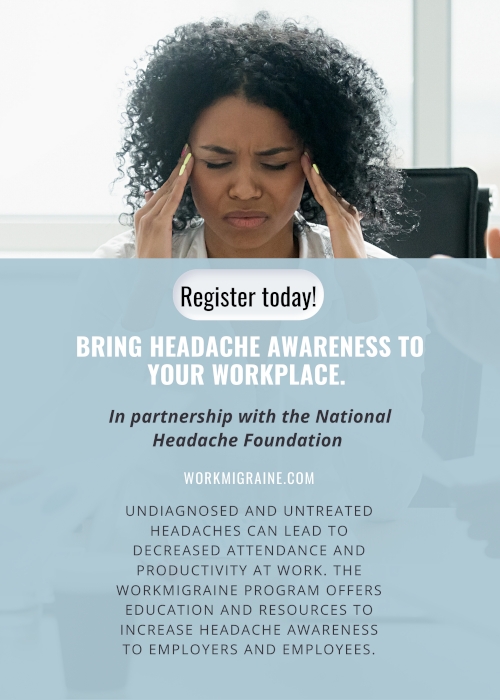Promoting a Safe & Healthy Workplace
Friday, February 21st, 2020
“Almost 3 million workers die each year from occupational accidents and work related diseases. This is an unacceptable and avoidable human cost. We can and must reduce and eliminate such deaths, injuries and diseases from work.”
International Labour Organization Director-General, Guy Ryder
The quote above is extremely sobering. When we realize that the vast majority of these illnesses and deaths are due to mere human error, we understand how important greater education and prevention truly are. We cannot afford so many lives lost or affected by our carelessness or neglect.
At IAB, we are doing our part to spread health education in the workplace. We connect healthcare providers with employer groups to help bring wellness to the workplace. This April 28th, we observe World Day for Safety and Health in the Workplace. Each year the International Labour Organization focuses on a specific theme for this day. Below we will go over some practical ways to promote health and safety in your workplace.
Healthy Habits in the Workplace
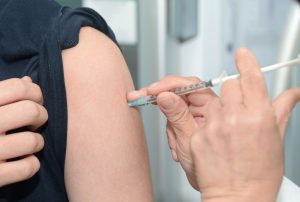
- Handwashing
- Handwashing is always the single most effective and simplest way to prevent the spread of disease. You should always wash hands after using the restroom. Wash hands at the start of your shift, after removing any protective gloves, between patients, before food prep, etc. Be mindful of the type of work you’re in and fill in appropriate times when diseases could potentially be spread. Never underestimate the importance and effectiveness of handwashing. Keeping a generally clean and sanitary work environment also prevents the spread of disease.
- Ventilation
- Proper air ventilation can also help prevent the spread of disease. The building humidity should be kept at 60 percent or less to inhibit the growth of any mold or fungus. Ensure that the building’s ventilation system is maintained properly. Circulation of fresh air keeps bacteria from growing and provides healthy air to breathe.
- Vaccinations
- Keep up to date on all the recommended vaccinations. Providing on-site vaccinations that pertain to your line of work is an extra measure that is well worth the effort. Tetanus and Flu shots are beneficial to everyone. Certain hepatitis vaccinations should be emphasized to protect those working with children, in healthcare or waste collection. Consult your doctor for the best vaccine recommendations for your workplace.
- Protective gear
- If you can potentially come into contact with any type of hazardous material at work, the proper protective covering can be life-saving. Eyes and mouths are vulnerable areas that can easily contract an illness. Keep them covered with masks, face shields, respirators, and safety glasses. Use gowns and gloves to cover clothing and hands which can carry infectious material. Without these coverings, diseases can be spread from person to person or from hand to face.
Safety in the Workplace
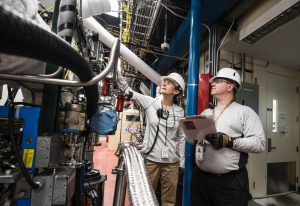
Safety policies and procedures are extremely important. But they are only useful if they are actually practiced. Review policies frequently and make sure all employees are familiar with them. Making safety a priority has to become a habit and habits take time to develop. When you create a work environment that promotes safe practices, it has to start with the employer to trickle down to the employees. Create a culture of safety and new employees will naturally be grafted in.
Other things to keep in mind when promoting a safe work environment:
- Always wear protective safety gear where appropriate.
- Understand that safety is non-negotiable.
- Take extra care to hire employees with integrity who will put safety first and not cut corners.
- Make plans and practice procedures for emergency situations.
- Provide proper training and multiple opportunities for practice.
ILO 2020 Theme: Violence and Harassment in the World of Work

Violence and harassment are unfortunate realities in the workplace. Where there are large groups of people, there will always be a risk for some occurrence of inappropriate or dangerous behavior. Here are some practical ways we can help decrease their occurrence or at least head them off before any real danger occurs.
- Employers –
- Be sure to check on the morale of your employees. You can’t monitor everyone all the time, but if you’re an easy person to approach, employees are more likely to come to you when there is a problem.
- Hire people for their skill level but also for their character.
- Offer training and materials on what to do if you experience or witness bullying or harassment at work.
- Have a harassment policy and review it often.
- Employees –
- Speak up. If you feel as though you or a coworker may be in danger, tell someone about it. Don’t try to handle it on your own. Making a big deal out of nothing is better than waiting until it’s too late.A Forbes article on Workplace safety gave this real-life example:
A woman overheard a colleague talking fearfully to her boyfriend while on a break outside the building; the woman was pleading with her boyfriend not to show up at her office. The colleague reported this to Human Resources and they called the police who showed up mere minutes before the boyfriend appeared; he was armed. By speaking up, the colleague had saved the day.
- Know your rights. If you’re being harassed or discriminated against report it.
- Keep notes on occurrences of harassment with as many details as possible.
- Call the police. If you’ve become a victim of a criminal act, do not hesitate to contact authorities.
- Speak up. If you feel as though you or a coworker may be in danger, tell someone about it. Don’t try to handle it on your own. Making a big deal out of nothing is better than waiting until it’s too late.A Forbes article on Workplace safety gave this real-life example:
Together we can make our workplace a safer and healthier place to be. Training and prevention are absolutely essential for our success in diminishing the number of casualties each year. Visit our National Wellness Observance Calendar for more resources on World Day for Safety and Health at Work.
5 Things You Never Knew About Your Liver
Tuesday, October 22nd, 2019
If I asked you what the most important organ in your body is, what would you answer? You’d probably say, your heart or maybe your brain. Some might even think of their lungs. All these organs are indeed essential to life. But there’s another incredibly important organ, essential to life, that often goes unnoticed: the liver. The liver is the largest solid organ in your body and is responsible for more than 500 functions. More than 500 because its functions are still being explored! We still don’t know the extent of its importance. Our bodies are incredible! Let’s explore 5 things you never knew about your liver and how we can keep it functioning in tip-top shape.
1. The Liver is Like a Starfish

Your liver is the only organ that can regenerate. Liver disease in extremely common and can lead to liver cancer. Liver cancer only occurs in people with a preexisting condition, such as obesity, hepatitis or alcohol abuse. In some cases, individuals have had the diseased portion of their liver removed. Many have gone on to live healthy lives with only part of their liver in tact. This is because it’s able to regenerate to its full size in a matter of mere months.
2. It Gives You Energy

Your liver breaks down carbohydrates and turns them into glucose: your body’s energy source. It stores glucose in the form of glycogen and is able to tap into it whenever you need a burst of energy! This why low blood sugar means low energy. Be sure to give your liver some complex carbs and whole grains to use as fuel so you don’t crash and burn.
3. It Keeps You From Getting Sick
Within the liver are a large number of cells necessary for your body’s immunity. These are called Kuppfer Cells or “KC”. Kuppfer cells are disease-fighting agents that fight off any bad gut bacteria that could make you sick. So when your body is fighting off an infection, thank your liver!
4. Helps You Lose Weight

This one is multi-faceted. Firstly, the liver produces bile. Bile is used to break down fat, cholesterol and vitamins so that they can be used by your body. Without your liver, carbohydrates, fats and proteins wouldn’t be able to be metabolized properly. Because of your liver, your body can use fat and carbs for energy rather than just storing them as extra weight. It’s also able to remove excess hormones from the body like estrogen and aldosterone. Too much of these hormones can lead to weight gain. Detoxing your liver may aid your weight loss efforts by enabling your liver to do its job more efficiently.
5. Poison Control
Perhaps the one thing you already knew about your liver is that it’s your body’s filtration system. It filters impurities and toxins from your blood and aids your digestive system. This is why consuming large amounts of alcohol and medications can be so damaging to your liver. Think of your air filter in your home or your car. What happens to it after a period of time? It starts looking really dirty and gross. It can’t function as well after all that filtering of poisons in your body.

Cleaning the Filter
So how do we reboot our liver and keep it functioning well? Even if you don’t use alcohol, the regular breakdown of proteins can create toxins in your bloodstream. Your liver is always filtering out the bad stuff. Taking a supplement with milk thistle and dandelion root is an excellent way to detox your hardworking liver. Turmeric, garlic, green veggies and even drinking tea have also been shown to have detoxing benefits. Basically eating a healthy diet and lifestyle is the best way to care for your liver.
October is Liver Cancer Awareness Month. Visit our Wellness Observance Calendar for more information on keeping your liver healthy.
How to Age Gracefully
Friday, September 6th, 2019
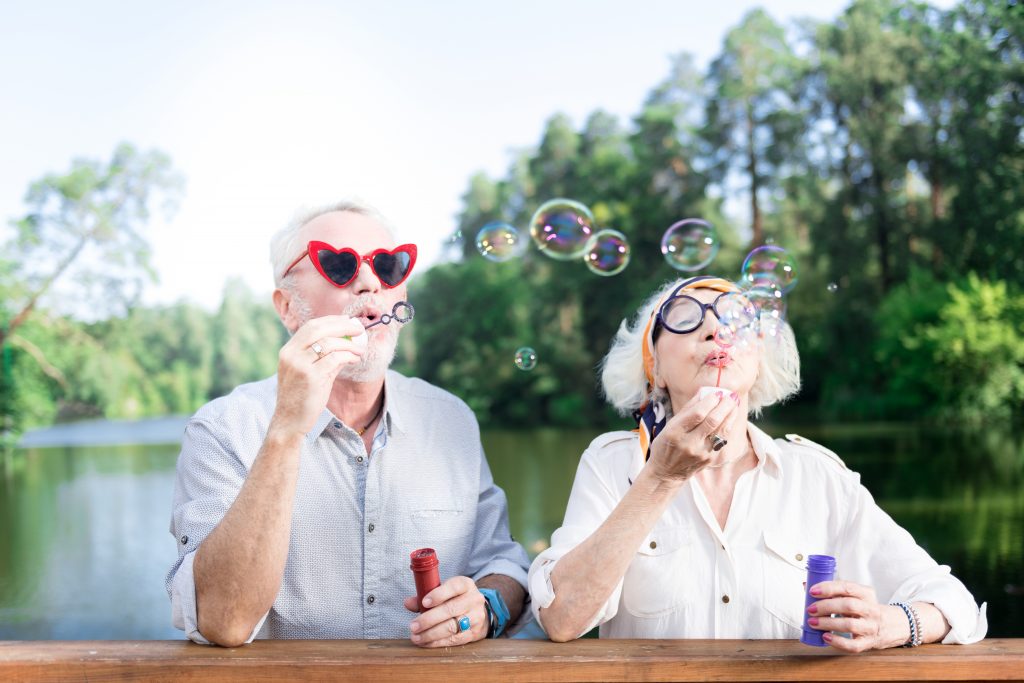
Age is just a number, they tell us. But it seems we’re getting older, younger and younger. Some twenty-somethings feel as though they’re pushing sixty. How do we keep our minds and bodies in tip-top shape as we age? Are the aches, pains and ailments just inevitable? Let’s discuss how to age gracefully. Hopefully, you’ll find a new lease on life in the paragraphs that follow.
Eat A Balanced Diet
This first tip is a simple one. It’s used so frequently, it may seem trite. But the simplicity and importance of eating a balanced diet cannot be overestimated. With all the fad diets and extreme restrictions out there, balance can be hard to come by. The fads will come and go. There is no one food group that can be termed “bad.” Most everything has a benefit in moderation.

Don’t deprive yourself of good foods that you like to eat. Just eat more fruits, veggies, lean meats and whole grains. Even carbohydrates are important. It can be tempting for weight loss to eliminate carbs almost entirely. Just like carbs are important, many healthy fats are rich in Omega vitamins essential for good heart and brain health.
Some people do have to monitor carbs more closely for other health concerns. But an extreme diet can deprive your body of nutrients it actually needs. While you may experience weight loss in the short term, what’s most important? Losing weight quickly, right now? Or sustaining a healthy, balanced diet over time that will lead to a healthy weight in addition to a long healthy life.
Move Your Body

Studies have shown that older adults who maintain active, healthy lifestyles, are 60% less likely to develop dementia. The way you treat your body affects your mind, just as the way you treat your mind affects your body. The mind-body connection is a powerful thing.
Think Youthful Thoughts
Our mental health contributes much more to our overall health than you might think. There are many who are dead long before their bodies are buried. Don’t be one of them! Live your life to the fullest. Make plans, set new goals, dream new dreams. As long as you have breath you have a purpose to fulfill. Meditation or Prayer has even shown to improve age-related memory loss. Meditation can contribute to your physical and emotional health by decreasing stress and improving mental clarity.

Invest in our youth! Mentor someone younger than you. Volunteer with after school programs or be a big brother/sister. Being around young people keeps you dialed in and aware. We tend to be most like the people we spend time around. Keeping our associations varied opens our minds to learning new things. Learning new things keeps our minds healthy.
Sharpen and challenge your mind to think. When you cease to learn, you cease to truly live. Take up a new hobby or audit a college course. An endless supply of knowledge can be found simply by taking up the habit of reading. When you continue to utilize your thinker, you guard yourself against dementia and strengthen your mind.
Wear Your Sunscreen
Never underestimate the impact of a good skincare routine, both for men and women. Begin your preventative care as young as age 25. The damage done to our skin only shows up about ten years after it occurs. Be diligent in your skincare routine and you will see a marked difference in your youthful appearance.
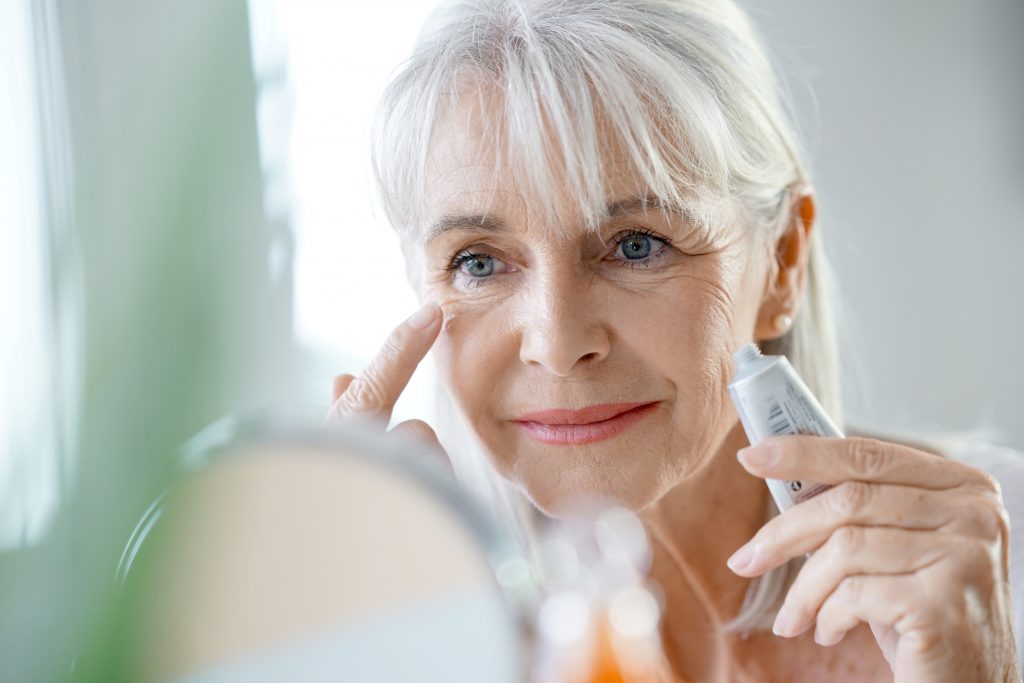
For women, it’s important to use a cleanser, toner, eye cream, treatment product (anti-wrinkle or brightener) moisturizer, and exfoliate regularly. Men tend to exfoliate and moisturize the lower portion of their face through shaving. They show their age on their forehead and around their eyes. Daily sunscreen in addition to an equally good skincare routine is just as important for men.


